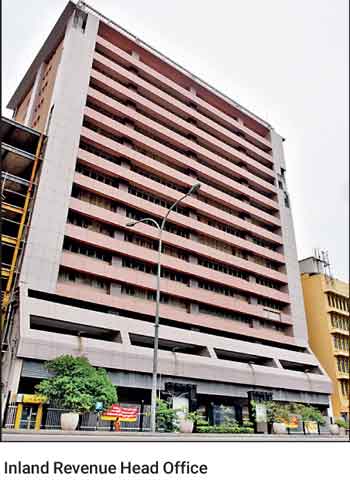Thursday Feb 19, 2026
Thursday Feb 19, 2026
Saturday, 2 December 2023 01:22 - - {{hitsCtrl.values.hits}}
 In an open letter addressed to the Commissioner General of the Inland Revenue Department (IRD), Lanka Tax Founder Mahesh Yogarajan has appealed for an extension of the tax return submission deadline, citing recent system errors that affected many taxpayers.
In an open letter addressed to the Commissioner General of the Inland Revenue Department (IRD), Lanka Tax Founder Mahesh Yogarajan has appealed for an extension of the tax return submission deadline, citing recent system errors that affected many taxpayers.
The request comes following the IRD circulating that taxpayers facing difficulties in filing their returns due to system errors should be allowed to complete the task within 48 hours from 30 November midnight with the acknowledgement date treated as 30 November 2023.
Acknowledging the significant investment made by the IRD in the Revenue Administration Management Information System (RAMIS) 2.0 system, aimed at enhancing tax administration, Yogarajan points out that glitches encountered on 30 November have hindered taxpayers’ ability to meet the deadline.
“The issue is complex and not solely attributable to taxpayers or the IRD. With the IRD’s investment of Rs. 4.5 billion in the system upgrade in 2022 alone I am certain that taxpayers anticipated a smooth experience with RAMIS 2.0, perhaps also contributing to the additional delay when starting their work. Therefore, I propose a more balanced approach with an extended deadline for submitting tax returns, say 31 December 2023,” he noted.
According to COPA records, the IRD under the Finance Ministry invested Rs. 10 billion towards building RAMIS in 2014 and spending around Rs. 17 billion over the years. The idea was to modernise and improve the tax collection process. However, it is now evident that the system does not operate as intended, despite more money spent to strengthen the system.
This extension, he argues, would afford taxpayers ample time to comply without the pressure of system constraints and demonstrate the IRD’s commitment to facilitating a smooth tax filing process.
“An extended deadline would also symbolise the collaborative effort needed between the Government, the IRD and taxpayers to enhance compliance and ensure financial stability. We earnestly request you to consider this extension in the interest of the taxpaying public, who have already complied with PAYE tax,” Yogarajan added.
In terms of the provisions of the Inland Revenue Act, No. 24 of 2017 (IRA), every person liable for income tax shall file a return of income not later than eight months after each year of assessment.
The last date to furnish the return of income for the year of assessment 2022/2023 is 30 November.
COPA records also noted that IRD management had declined to operate RAMIS due to the absence of required personnel. Finance Ministry officials said IRD employees had been resisting the RAMIS because it prevents direct interactions with taxpayers and possible bribes for defaulting or underpaying taxes.
The recent IMF Governance Diagnostic Assessment Technical Assistance Report also highlighted the apparent absence of an integrity culture within the Inland Revenue Department (IRD) and Sri Lanka Customs, identifying corruption as a widespread issue at all levels.
“The absence of clear mechanisms for information sharing among authorities responsible for tax policy and revenue administration limits the soundness of policy choices, whilst it restricts the ability to identify and address shortfalls in expected revenue collection. Exposure to corruption in Customs and tax administration is substantial, given the absence of effective systems for performance monitoring and detecting and sanctioning of officials for improper behaviour,” it added.
The IMF report also highlights the limited progress made in digitising processes in tax and Customs requiring users to maintain high levels of direct interaction with officials and reducing the ability to identify integrity issues through data analytics.